Bulgaria Jewish Tour | Jewish Heritage Travel in Bulgaria
If you are looking for a customized, in-depth Jewish tour of Bulgaria, you’ve come to the right place. Our Jewish heritage tour of Bulgaria accounts for nearly two-thirds of our larger 12-day Jewish heritage travel itinerary through Bulgaria, North Macedonia, and Greece. You will have the unique opportunity to experience firsthand the rich Sephardic history, culture, and traditions of the Jewish Balkans.
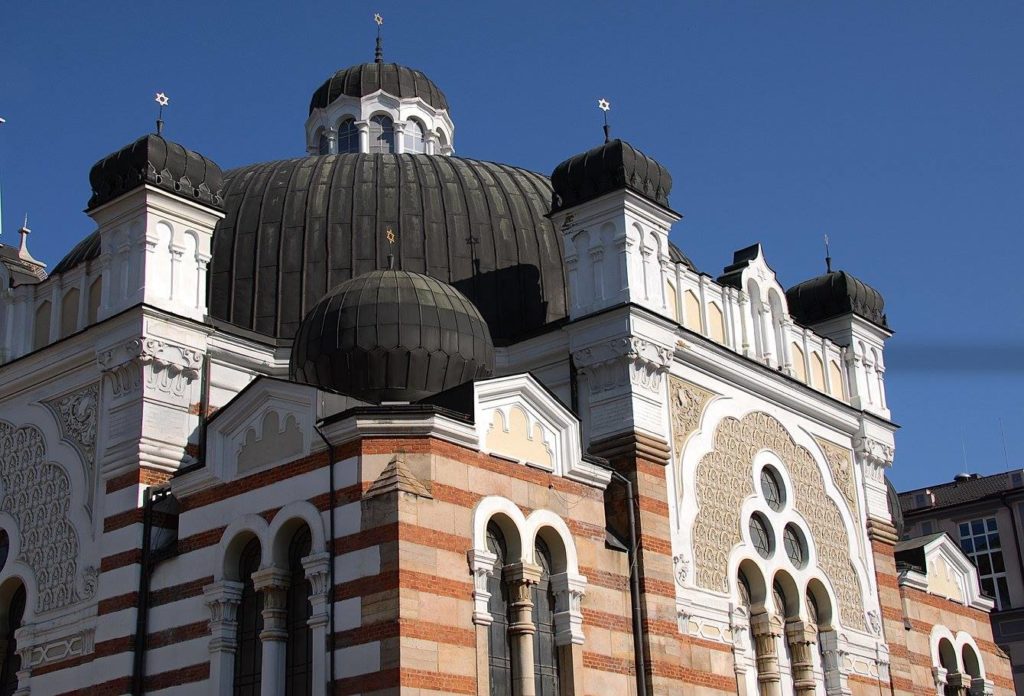
Sofia Synagogue 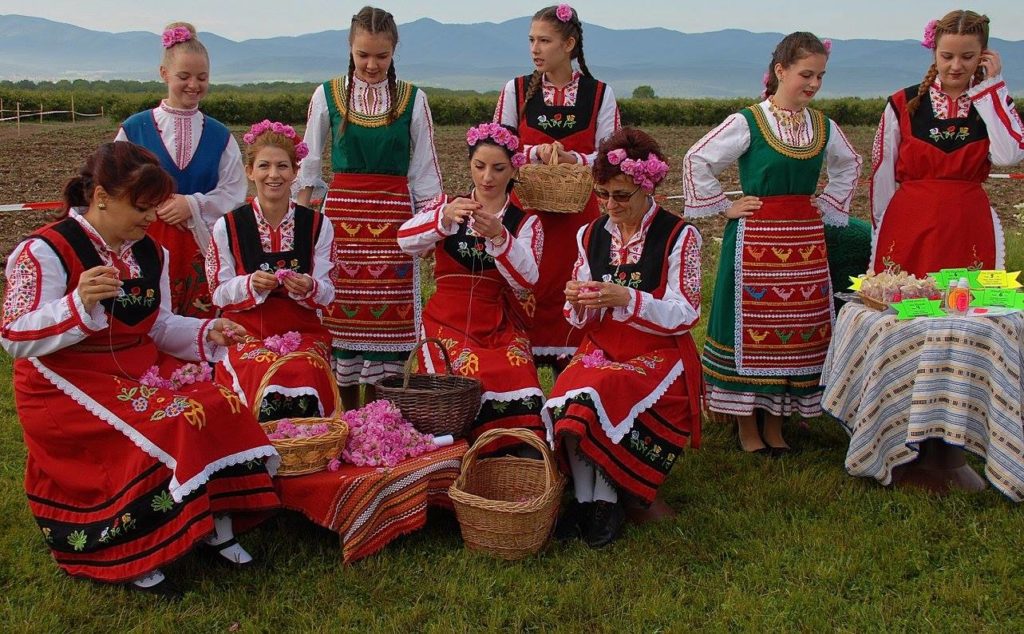
Rose festival 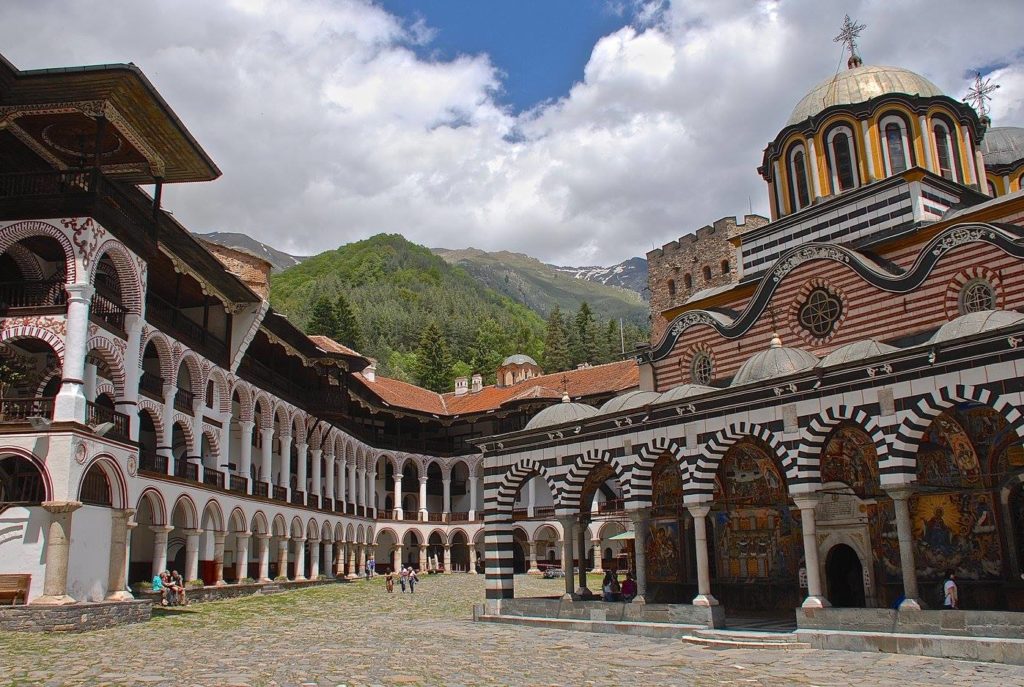
Rila Monastery
Our Jewish tour of Bulgaria naturally starts in the nation’s capital Sofia. Most of Bulgaria’s Jews live in Sofia, and you will likely fall in love with the quiet charm of this vibrant and friendly European city. Highlights of our Sofia Jewish tour include the majestic Sofia synagogue (1909), designed in ornate Neo-Moorish style by Austrian architect Friedrich Grunanger. This is one of only two functioning synagogues in the country, and you will have the option of attending traditional Sephardic Shabbat services. On the synagogue premises, there is also a small Jewish museum. Our Sofia Jewish tour continues through the historic Jewish neighborhood, past the Jewish community center, and includes stops at two important Jewish monuments, one of them dedicated in 2016 in the presence of Israeli President Reuven Rivlin.
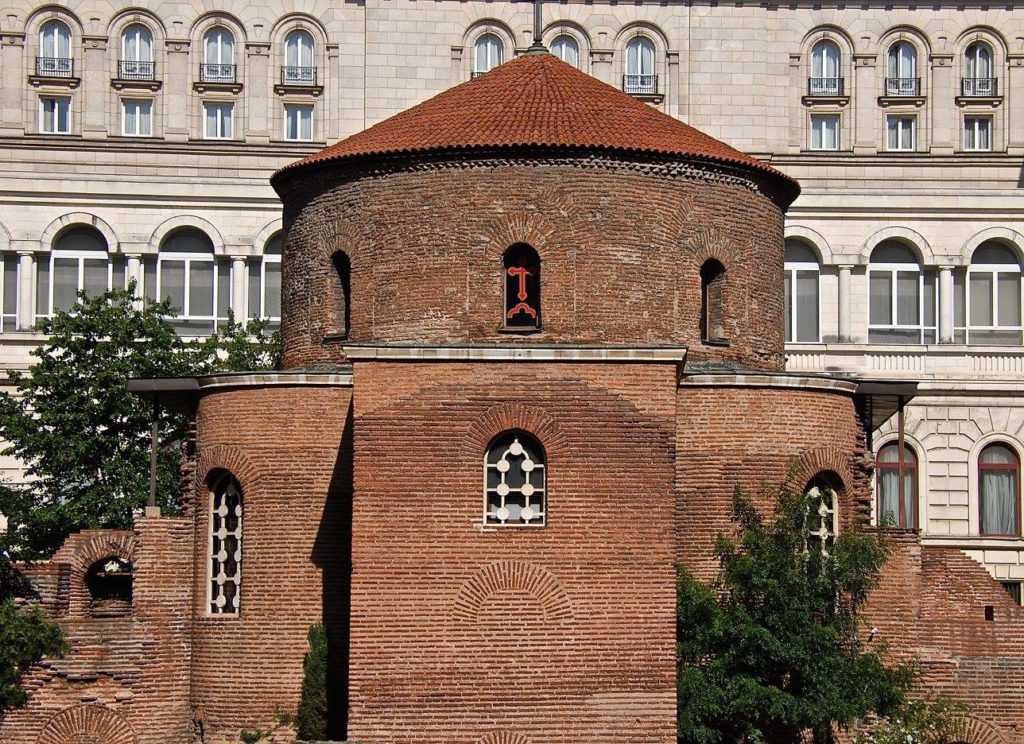
Roman Rotunda 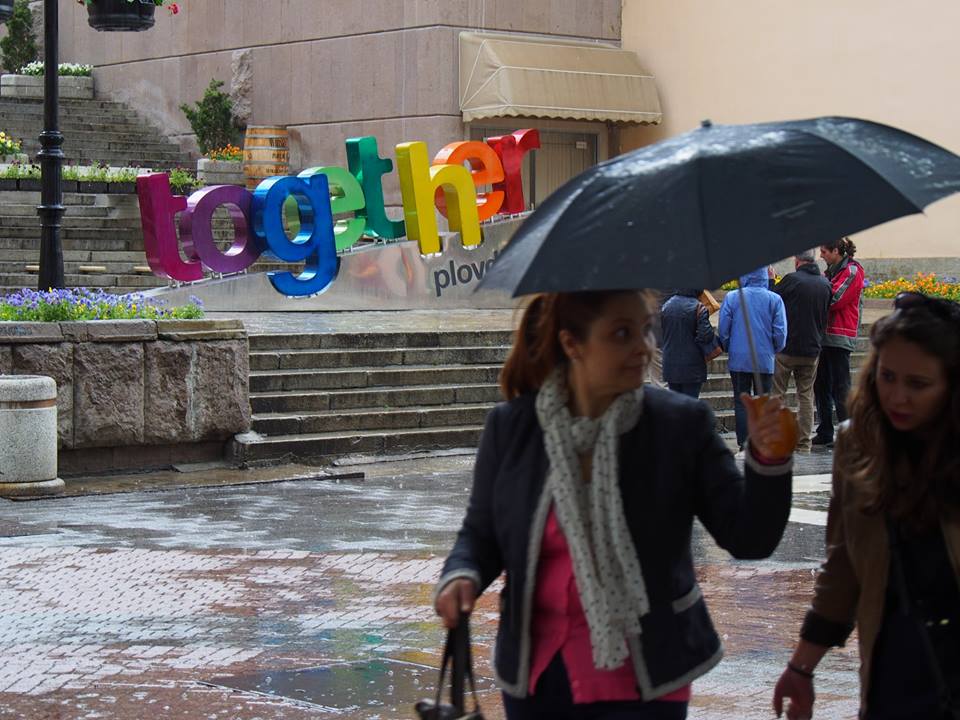
Plovdiv, Bulgaria 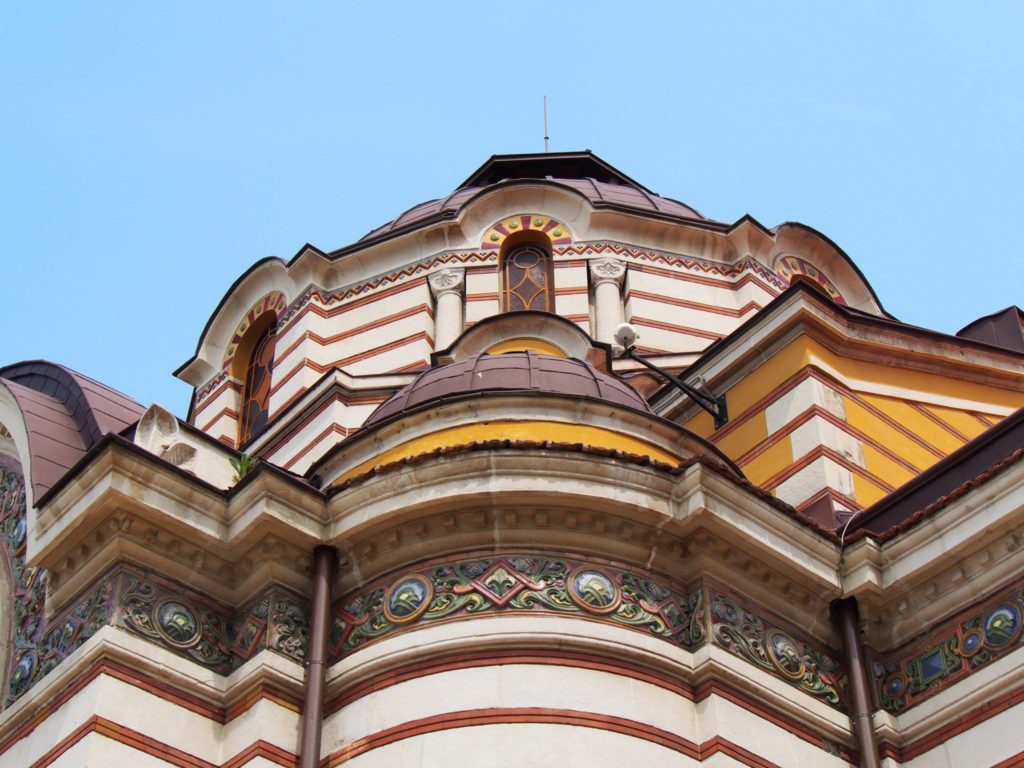
Public baths
Plovdiv, Bulgaria’s second largest city, is also home to the second largest Jewish community and the only other active synagogue, the 1892 Zion synagogue. At the turn of the century, it was one of six synagogues in Plovdiv and was known by its Ladino name Kal Muevo (the New Synagogue). As we walk along the city’s beautiful promenade, we will point out the historic homes of some of the most prominent Plovdiv Jews. We will also visit the city’s Jewish monument, installed in 1998, and see the local Jewish school — all located in the Orta Mezar Jewish neighborhood.
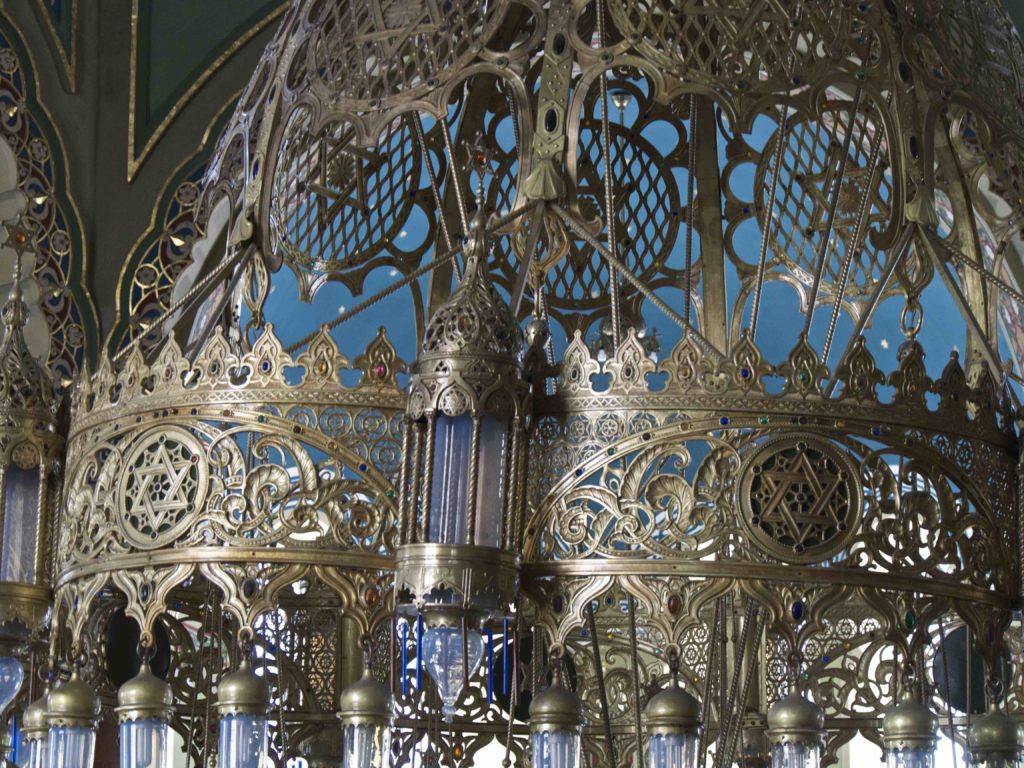
Sofia Synagogue 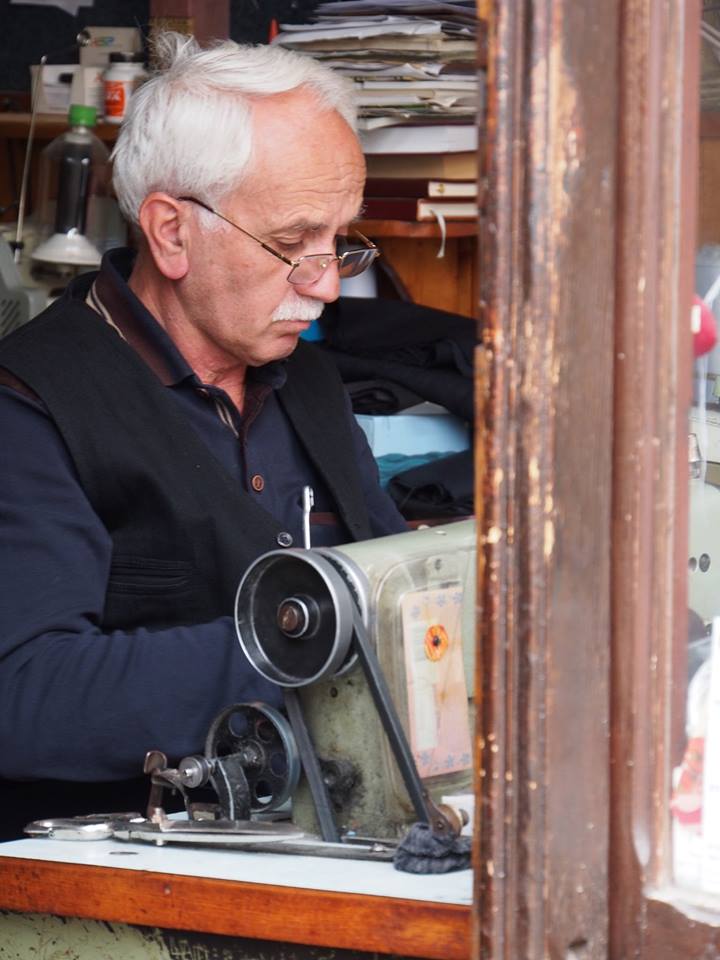
In Skopje 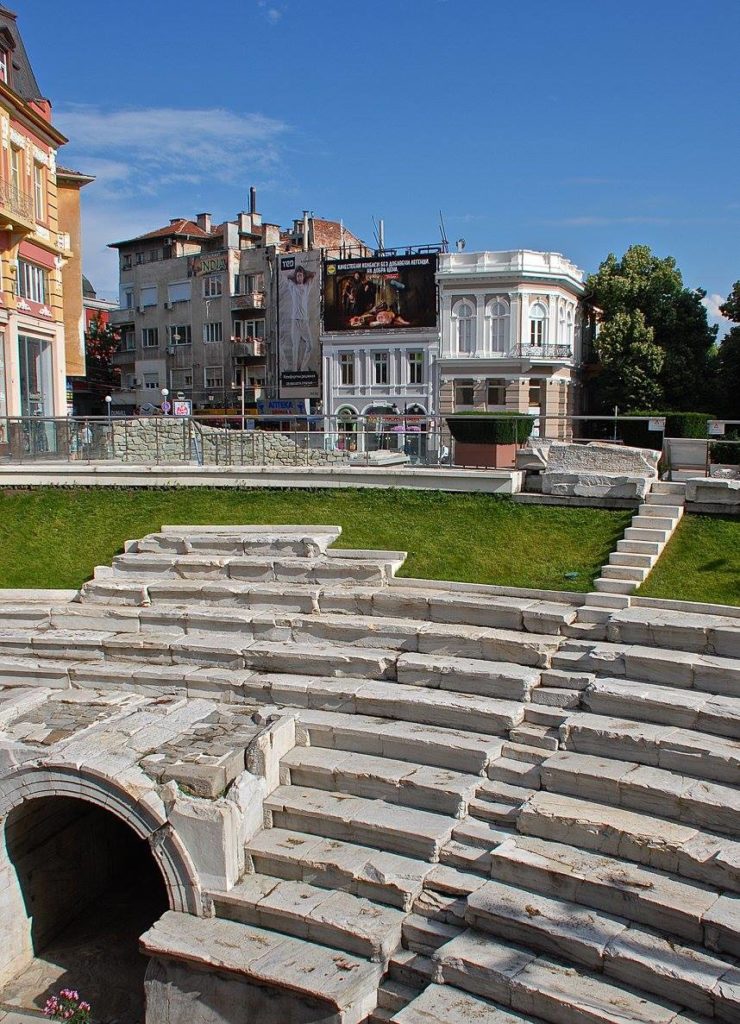
Roman stadium, Plovdiv
Another important stop along our Bulgaria Jewish heritage tour is the mountain town of Samokov, home to the affluent Arieh dynasty. The Ariehs were a Sephardic family that arrived to Bulgarian lands (then part of the Ottoman empire) in the late 1700s, and one of their lavish mansions functions as a museum. In western Bulgaria, Kyustendil is a key destination on our Bulgarian Jewish heritage itinerary. Kyustendil was the hometown of Dimitar Peshev, the valiant politician who was instrumental in the ultimate survival of all 50,000 Bulgarian Jews during the Holocaust. The Peshev Museum in Kystendil boasts a truly impressive exhibit. In southern Bulgaria, two leading Bulgarian clergymen who stood up for their Jewish neighbors — and were recognized by Yad Vashem as Righteous Among the Nations — are buried at the beautiful Bachkovo Monastery.
As we study the historical events of WWII that led to the survival of Bulgaria’s Jewish community, we will also discuss the nearly 11,400 Greek and Yugoslav Macedonian Jews deported to the death camps by the Bulgarian authorities.
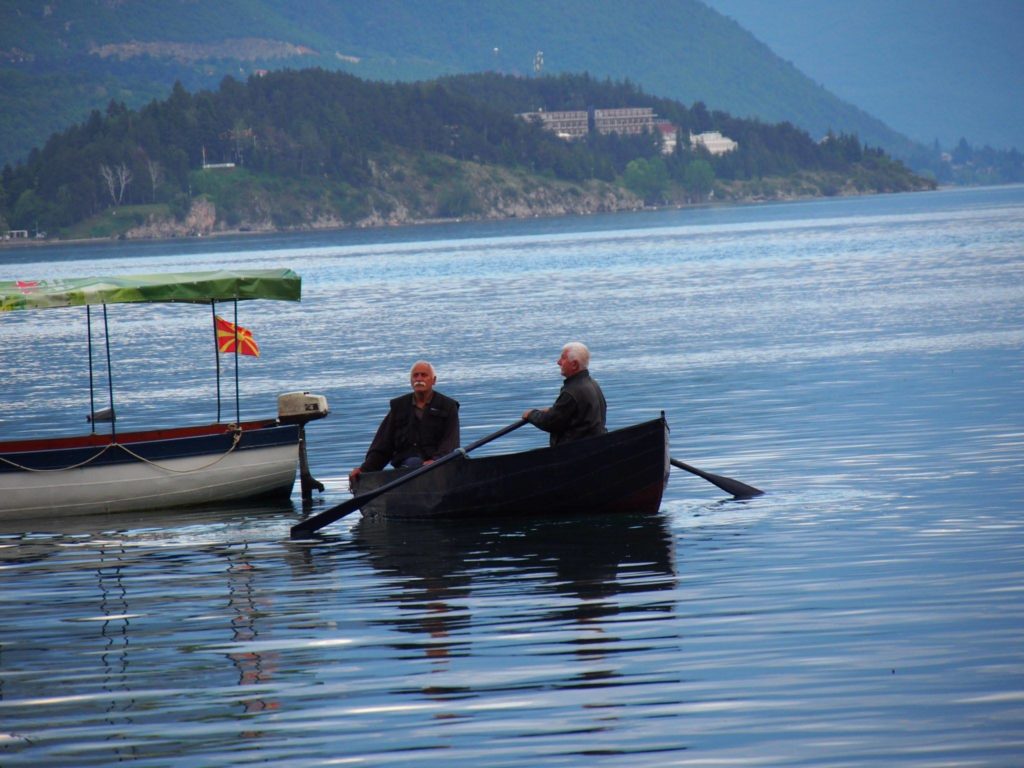
Ohrid 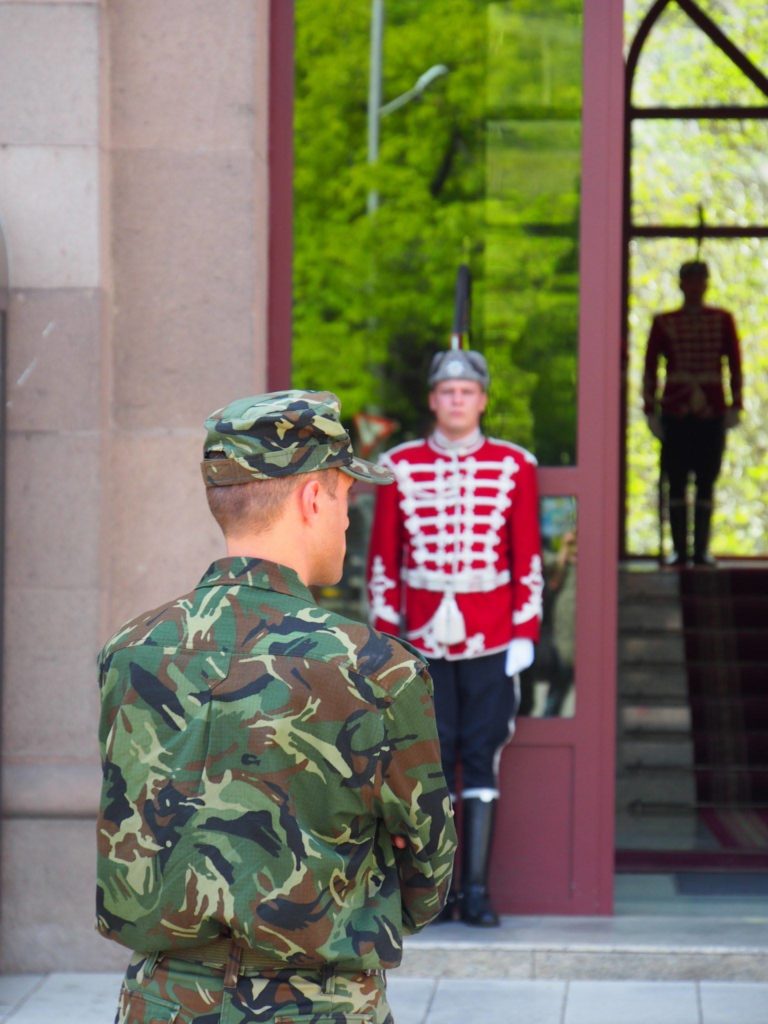
President’s Office 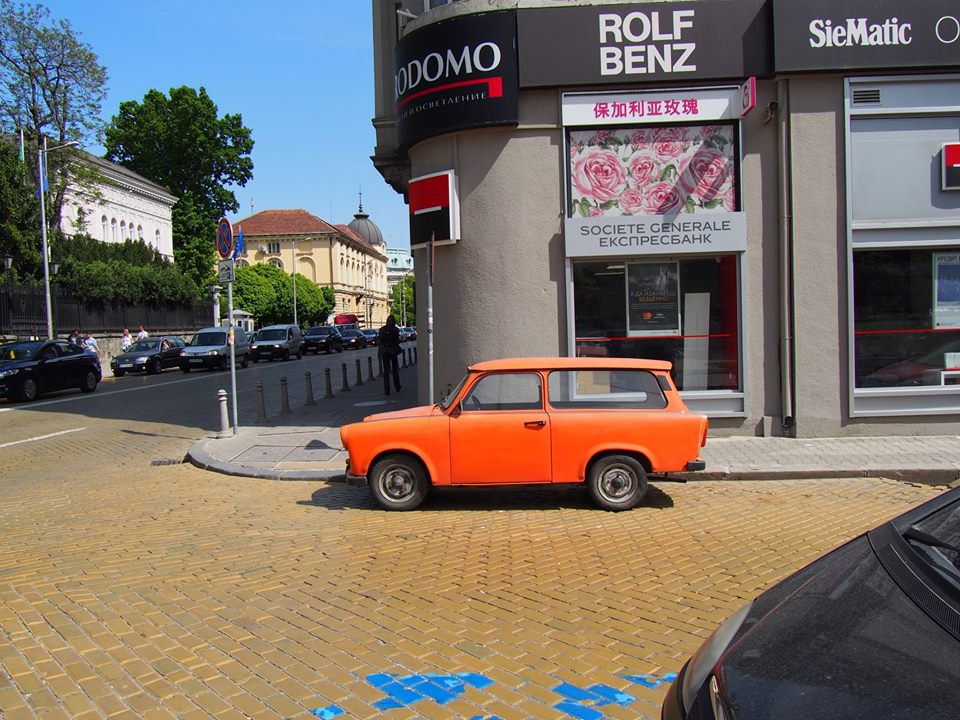
Sofia
Despite the thematic focus of our Bulgaria Jewish tour, our itinerary offers lots more besides Jewish heritage travel. You will surely be charmed by the stunning Rila Monastery; the pastoral Rhodope Mountains; Plovdiv’s magical Old Town and Roman ancient theater; the magnificent Alexander Nevski Cathedral; the Kresna Gorge; and the Pirin Mountains. It is also practically impossible not to fall in love with the delicious Bulgarian cuisine.
To request a detailed day-by-day itinerary of our Bulgaria Jewish tour, send an email to benatov@gmail.com or fill out our contact form.
Hotel accommodation: we stay at luxury, four-and-five star, centrally located hotels. Our five-star Sofia hotel, for example, is situated in the very heart of the city center, offers the largest rooms in the country, and is famous for its lavish breakfast. Our state-of-the-art boutique Plovdiv hotel, right in the historic center, is family-owned and is hands down the best choice in town. As we continue on to Thessaloniki in Greece, our five-star hotel is situated on the city’s main plaza, facing the serene Thermaic Gulf. Keep in mind, though, that the hotel lobby shares an entrance with an iconic Thessaloniki patisserie, offering exquisite desserts, gelato, and irresistible chocolates. Your detailed Bulgarian Jewish heritage itinerary will include the full list of hotels.
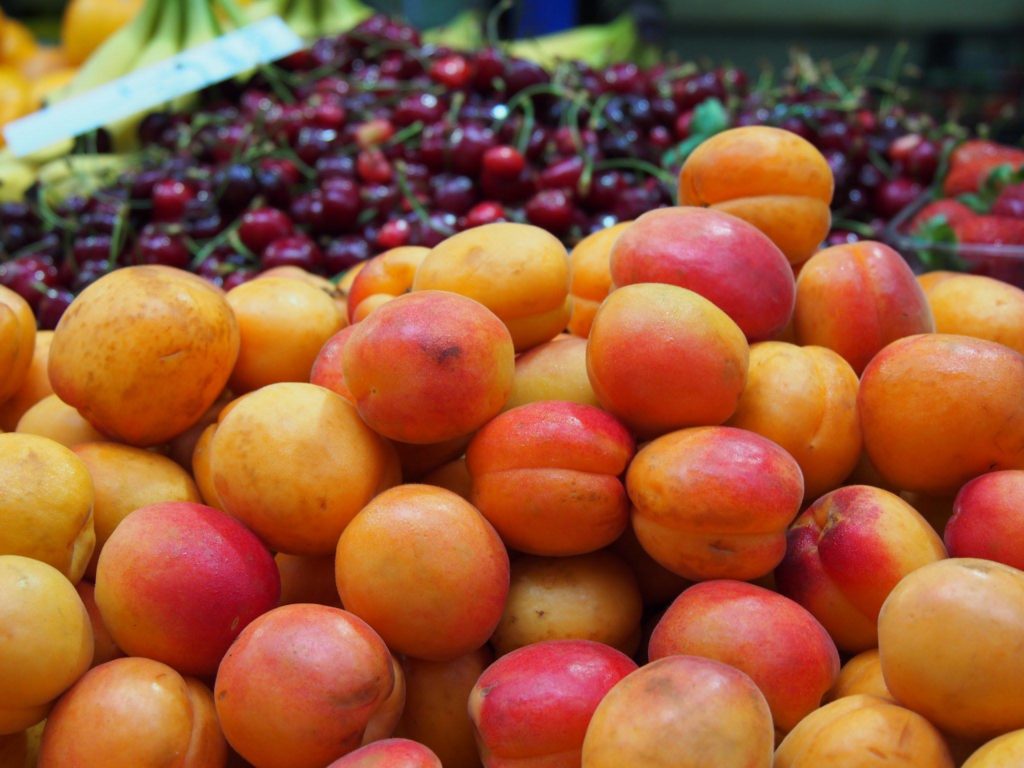
Fruit 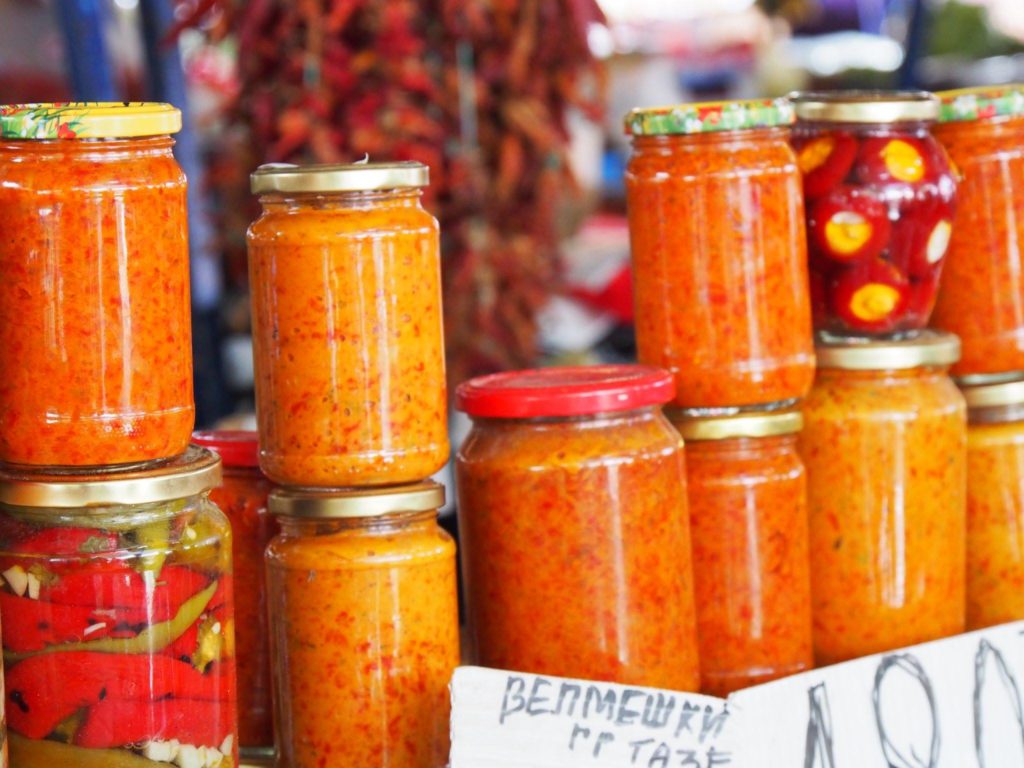
Balkan spreads 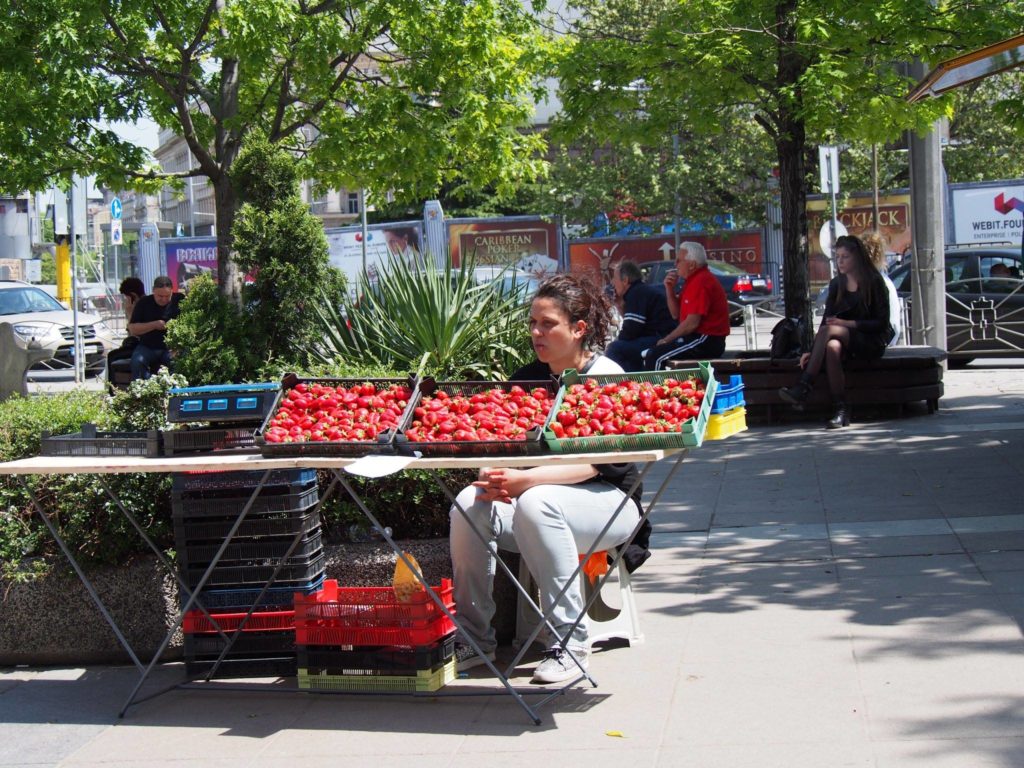
Sofia
Our Bulgaria Jewish Heritage itinerary at a glance (contact us to request the full, detailed day-by-day itinerary for our 12-day Jewish tour):
Day 1: Sofia
Arrival and hotel accommodation. We will meet you at the Sofia airport and take you to your hotel. (If you decide to arrive a day early, we will still meet you at the airport, arrange your additional hotel overnight, and provide you with suggestions for additional activities in Sofia.) Group dinner at one of the leading Sofia restaurants. Overnight in centrally located five-star hotel in Sofia.
Day 2: Samokov—Rila Monastery—Sofia
Take a day trip along the Iskar reservoir to the mountain town of Samokov and visit the Sarafska Museum, housed in a mansion built by the promienent Sephardic Arieh family. Don’t miss the family synagogue the Ariehs built next-door. Continue on to the sumptuous Rila Monastery, surrounded by the steep slopes of Bulgaria’s tallest mountain. King Boris III was buried at the monastery church, upon his sudden death in August, 1943. Afternoon return to Sofia. Overnight in centrally located five-star hotel in Sofia.
Day 3: Sofia Jewish Tour
An in-depth exploration of Sofia’s rich Jewish heritage and much more. Visit the spectacular Sofia synagogue and Jewish museum, walk through the Jewish neighborhood, stop at two important Jewish monuments dedicated to the survival of Bulgaria’s Jewish community and to the memory of the Greek and Macedonian Jews deported to Treblinka by the Bulgarian authorities. Walk along Sofia’s famous “yellow-brick road,” passing by the former Communist Party House, the concrete open lot of the missing Georgi Dimitrov mausoleum, the Royal Palace, the baroque National Theater, the 1912 Russian Church, Parliament, and the magnificent Alexandar Nevski Cathedral. Along the way you will also see impressive buildings and remains from Roman Serdica. You will have the chance to buy unique Sephardi handiwork produced by members of the Manos Bendichas (Blessed Hands) Jewish community club. Overnight in centrally located five-star hotel in Sofia.
Day 4: Sofia—Kyustendil
Our morning drive through southwestern Bulgaria takes us to Kyustendil, nestled in the foothills of the Osogovo mountain. In 1943, this small Bulgarian town was home to just 980 Jews, but what a vibrant and energetic community it was! Kyustendil Jews were at the epicenter of the breathtaking series of events of March 1943, which ultimately led to the last-minute cancellation of government orders to deport Bulgarian Jews. The most crucial figure in that story was the Kyustendil-born vice-chairman of parliament Dimitar Peshev (a non-Jew). At the newly built Peshev museum we’ll learn more about Peshev’s moral stamina, for which Israel’s Yad Vashem bestowed him the Righteous Among the Nations title. Our itinerary then continues on to neighboring North Macedonia and Greece.
Day 5: Kulata—Dupnitsa—Plovdiv
Having spent six memorable days in North Macedonia and northern Greece, we return to Bulgaria. Our road through the Bulgarian southwest offers particularly scenic views along the Struma river, Kresna Gorge, and the Pirin and Rila Mountains. We’ll pass by the southwestern towns of Sandanski, Blagoevgrad, home to the only American university in the region, and Dupnitsa, where a sizable Jewish community once lived. By midday we will be in Sofia’s outskirts, and in the afternoon we continue east towards Plovdiv. After check-in, you’ll have time to explore Plovdiv’s vibrant promenade. Overnight in centrally located Plovdiv hotel.
Day 6: Plovdiv Jewish Tour
We start our day with a walk along a street lying in the heart of the Jewish quarter, stopping at the Jewish community center. The late-19th century Plovdiv synagogue is the only other active shul in the country, even though the community does not have a resident rabbi. Make sure to note the exquisite synagogue chandelier, made of quality Venetian glass. Pass by the Jewish school and the Plovdiv Jewish monument. Explore the Roman stadium, the UNESCO Old Town, home to stunning vernacular architectural examples of the “Plovdiv symmetrical house.” The 2nd century CE Roman ancient theater and the ethnographic museum are not to be missed. Overnight in centrally located Plovdiv hotel.
Day 7: Bachkovo Monastery—Sofia
Our morning will start with a visit of the nearby 11th century Bachkovo monastery, nestled in the scenic Rhodope Mountains. Buried in the main church are two of the country’s Orthodox bishops who were instrumental in defending Bulgarian Jews during the Holocaust. The marketplace outside of the monastery offers many homemade Bulgarian jams, mountain honey, and some particularly unique traditional spices and herbs. From Bachkovo we head west toward Sofia. You’ll have free time in the afternoon to explore parts of the capital you did see or to get a few last-minute gifts for friends back home. Our farewell dinner will be a true multi-course fine-dining experience, cooked by one of Bulgaria’s leading chefs.
Day 8: Sofia—Airport
Free time and departure. (But we hope you visit Bulgaria again.)
Some trivia from Jewish Bulgaria:
- Rabbi Joseph Karo, author of Shulhan Arukh, spent about 12 years in the Bulgarian town of Nikopol (then part of the Ottoman Empire).
- The Sarajevo-born Sephardic rabbi Eliezer Papo, author of Pele Yoetz, led the Jewish community of the town of Silistra and in the late 1820s protected its citizens from a cholera epidemic.
- Carl Djerassi, famous as “the father of the pill,” was born in Vienna but grew up in Sofia, his father’s hometown.
- Elias Canetti, the 1981 winner of the Nobel Prize in Literature, was born in the Bulgarian Danube port town of Ruse (Ottoman Ruschuk), where he grew up in a Sephardic Ladino-speaking household.
- Artist Jules Pascin (1885-1930) was born into the Sephardic Pincas (Pinkas) family in the northwestern Bulgarian town of Vidin, on the banks of the Danube. Vidin was home to a sizeable Jewish community, and the imposing 1894 Vidin synagogue still stands — in ruins. A $5.5 million renovation project has been approved, and, upon completion, the Vidin synagogue will be transformed into the Jules Pascin cultural center. (At the Sofia synagogue there is a miniature model of the Vidin synagogue.)
- The celebrated pianist Alexis Weissenberg was born in Sofia and studied with the famous Bulgarian composer Pancho Vladigerov, whose maternal Pasternak side of the family hailed from Odessa.
- Before the arrival of the Sephardim in the late 15th and early 16th century, there were existing Jewish communities of Romaniote, Bavarian, Hungarian, French, and Italian Jews.
- In 1900, Jewish communities were officially registered in 34 towns across Bulgaria.
- Italian Jewish merchants settled in Bulgaria in the thirteenth century, at the invitation of Тsar Ivan Asen II.
- In the late 14th century, Rabbi Shalom Ashkenazi of Neustadt founded in the Danube town of Vidin the first yeshiva in Bulgaria.
- In the early 20th century, there were three Sephardic synagogues in Plovdiv: Tsion (Zion), Yeshurun, and Shevet Ahim. The community rabbi at the time was Shemuel ben Benyamin.
